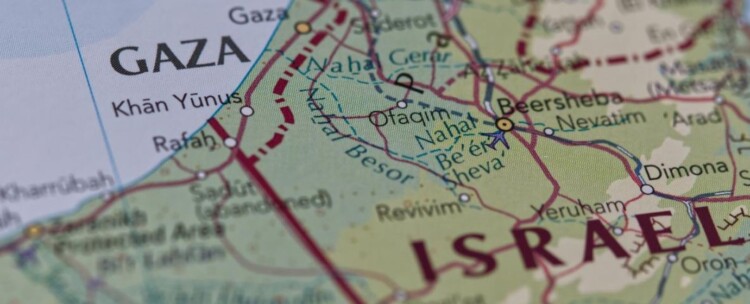Introduction
The Israeli-Hamas conflict has long been a source of tension and violence in the Middle East, leading to immense suffering and loss of life for Israelis and Palestinians. However, Hamas’s recent escalation of the conflict has underscored several factors that will hinder a successful resolution. This essay aims to shed light on the challenges faced, including the lack of proper political support by the United States, biased reporting by the international media, the insistence on ceasefires, and interference in Israel’s strategic plans. It also examines the consequences of proposed restrictions and humanitarian aid efforts while recognizing the extremist nature of Hamas.
Lack of Proper Political Support
One significant factor contributing to the derailment of the Israeli-Hamas war is the lack of sufficient political support from the United States. Historically, the United States has been a critical ally of Israel, providing diplomatic, military, and financial assistance. However, the Biden Administration National Security “B-Team” is not providing the support to Israel that is required to overcome a Hamas-biased and anti-Israel US and international media. This has emboldened Hamas and undermined Israel’s ability to counter their attacks effectively. The United States must reaffirm its commitment to Israel’s security and help in finding a lasting solution. We must remember that Hamas’s war cry is Death to Israel and Death to America!
Inaccurate Reporting by the International Media
Another contributing factor is inaccurate and biased reporting by the international media, which favors Hamas. Biased reporting influences public perception and shapes international opinion on the conflict. This biased portrayal can hinder efforts to address the root causes of the conflict and promote a peaceful resolution. Media outlets should strive to present a balanced and objective account of the situation, allowing for a more informed and constructive global dialogue.
Insistence on Ceasefires
The insistence on ceasefires, while intended to prevent further bloodshed, can also hinder the path to a lasting solution. Ceasefires provide an opportunity for Hamas to regroup, rearm, and launch other attacks once hostilities resume, as we have seen happening. Such an approach fails to address the destruction of Hamas and prolongs the cycle of violence. Instead, a comprehensive strategy should be pursued aimed at destroying Hamas and stabilizing the Gaza Strip for Palestinian prosperity and the safety and security of Israel.
Interference in Israel’s Strategic Plans
Interference by external actors, particularly the United States, in Israel’s strategic and operational plans can further complicate the conflict. While international involvement is necessary to facilitate peace negotiations, excessive interference can undermine Israel’s ability to protect its citizens and achieve its objectives. It is essential to strike a balance between international oversight and respecting Israel’s right to execute its military operations. The Israeli government must be allowed to determine the most effective course of action to destroy Hamas and ensure the safety and security of its people.
This includes not restricting the types of weapons and tactics used by the Israeli Defense Forces. Hamas is the most significant danger to Palestinian civilian safety. Israel has been and will continue to reduce collateral damage and limit civilian casualties, but this is complicated by Hamas’s use of civilians as shields and protected facilities as refuge for their fighters and leadership. Similarly, the provision of humanitarian assistance to Gaza must be carefully monitored to prevent it from falling into the hands of Hamas, who have a history of exploiting resources for their gain.
In conclusion, the Israeli-Hamas conflict has indeed gone off the rails due to various factors, including the lack of proper political support, biased reporting, insistence on ceasefires, and interference by external actors. To bring about a sustainable resolution, the international community must support Israel’s right to defend itself within the framework of international law. At the same time, efforts must be made to address the underlying causes of the conflict in the region and promote dialogue between all parties involved. Only by allowing Israel to fight and destroy Hamas effectively can lasting peace and security be achieved for both Israelis and Palestinians.
Donald C. Bolduc
Already have an account? Sign In
Two ways to continue to read this article.
Subscribe
$1.99
every 4 weeks
- Unlimited access to all articles
- Support independent journalism
- Ad-free reading experience
Subscribe Now
Recurring Monthly. Cancel Anytime.











COMMENTS